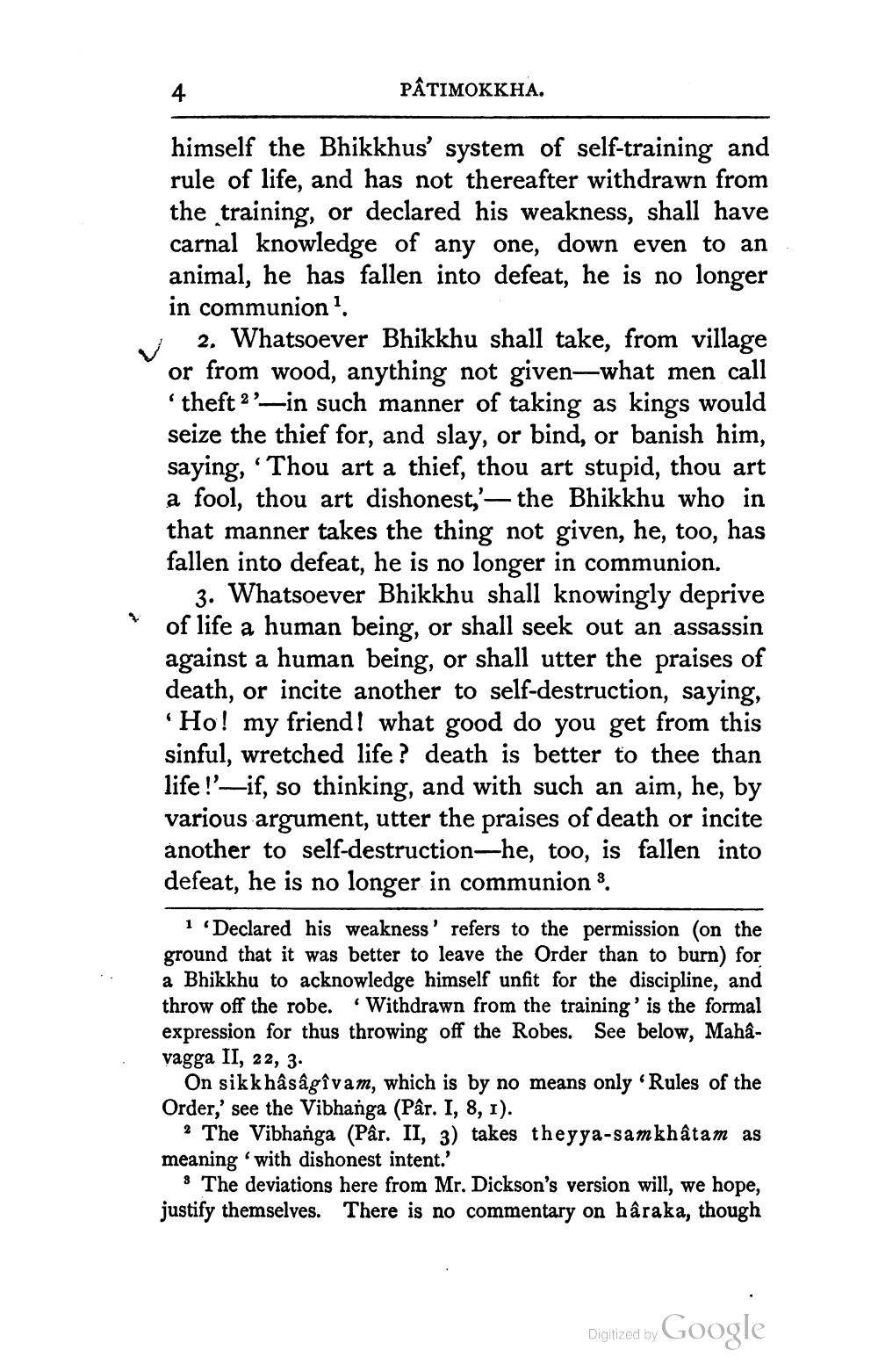________________
4
PÂTIMOKKHA.
himself the Bhikkhus' system of self-training and rule of life, and has not thereafter withdrawn from the training, or declared his weakness, shall have carnal knowledge of any one, down even to an animal, he has fallen into defeat, he is no longer in communion 1.
✓
2. Whatsoever Bhikkhu shall take, from village or from wood, anything not given-what men call 'theft 2'—in such manner of taking as kings would seize the thief for, and slay, or bind, or banish him, saying, 'Thou art a thief, thou art stupid, thou art a fool, thou art dishonest,'-the Bhikkhu who in that manner takes the thing not given, he, too, has fallen into defeat, he is no longer in communion.
3. Whatsoever Bhikkhu shall knowingly deprive of life a human being, or shall seek out an assassin against a human being, or shall utter the praises of death, or incite another to self-destruction, saying, 'Ho! my friend! what good do you get from this sinful, wretched life? death is better to thee than life!'-if, so thinking, and with such an aim, he, by various argument, utter the praises of death or incite another to self-destruction-he, too, is fallen into defeat, he is no longer in communion 3.
1 'Declared his weakness' refers to the permission (on the ground that it was better to leave the Order than to burn) for a Bhikkhu to acknowledge himself unfit for the discipline, and throw off the robe. 'Withdrawn from the training' is the formal expression for thus throwing off the Robes. See below, Mahâvagga II, 22, 3.
On sikkhâsâgîvam, which is by no means only 'Rules of the Order,' see the Vibhanga (Pâr. I, 8, 1).
2 The Vibhanga (Pâr. II, 3) takes theyya-samkhâtam as meaning 'with dishonest intent.'
8 The deviations here from Mr. Dickson's version will, we hope, justify themselves. There is no commentary on hâraka, though
Digitized by Google




